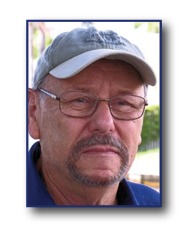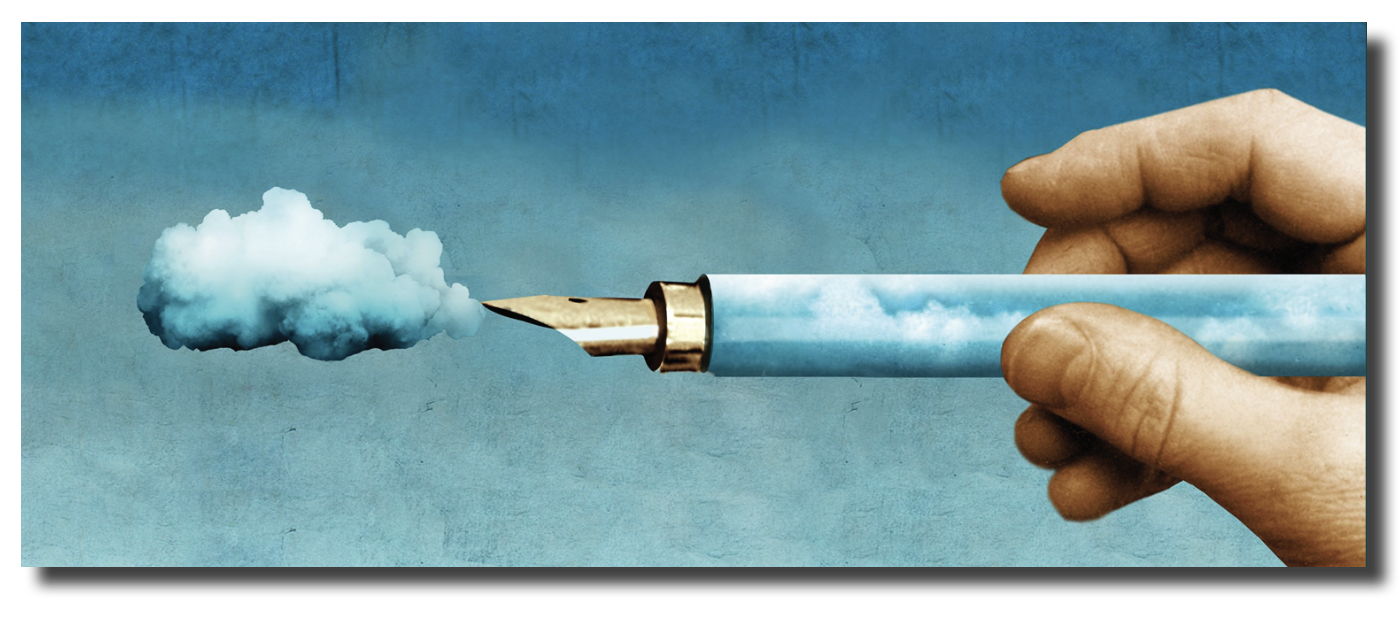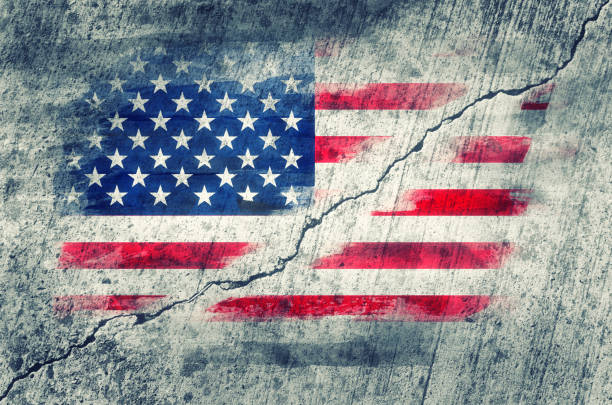Are We Willingly Killing Ourselves? Some Opinions About Stress From Some Guys Who Know It Well.
![BW
A Literate & Lively Exchange of is je] Er rs with Definite Or](https://contents.bebee.com/users/id/10405670/article/are-we-willingly-killing-ourselves-some-opinions-about-stress-from-some-guys-who-know-it-well/e63e6fdb.png)

Why do we do this?
Stress has become the plague of our time; a global epidemic that is spreading. The World Health Organization raised the alarm 20 years ago and reported that stress had become the biggest health issue of the 21st century.
Stress leads to increased conflict, decreased morale and puts strain on families and working relationships. It decreases performance and productivity and most of the time we are unaware of the degree to which stress is taxing our resources. In fact, much of our lifestyle is undermining our health, exhausting us physically and mentally without our being consciously aware of it.
Some scientists believe many of us tend to spend more time ruminating about negative stuff as opposed to celebrating the small positive stuff. Rick Hansen, a well-known neuropsychologist says it's because:
“OUR BRAINS ARE LIKE VELCRO TO NEGATIVE EXPERIENCES AND TEFLON TO POSITIVE ONES"
Interestingly, he connects this tendency back to our earliest ancestors...
Hansen writes, some of our earliest mammal ancestors, over time developed nervous tendencies in order to notice potential threats and remember painful experiences (part of the survival mode) and then passed those genes on to us...that same circuitry is active in our brains today.
In complete contrast.... according to Hansen and Mendius (Buddha’s Brain: The new neuroscience and the path of awakening. Fall 2007) much of our day-to-day positive experiences are processed through standard memory systems and actually need to be held in our awareness for between 10-20 seconds for them to sink in.
As I pointed out in our most recent joint posting ( https://www.bebee.com/producer/@don-kerr/does-social-media-have-a-future-or-is-it-just-a-stepping-stone-to-the-next-big-thing ) given that our attention spans are now about 8 seconds, how can we linger on what is good for us?
So the argument goes, this kind of hard wiring has a negative impact on many of our experiences and increases our stress.
Curious about your perspectives and possible explanations/remedies.

KEVIN: This is indeed a timely season for this topic Don given the upcoming election in the US, and the beginning of the retail season we call Christmas (it is no longer a religious holiday for most) where we buy things with money we don’t have, to impress people we don’t like, which becomes a major stressor for many people.
We seem to have jettisoned the very things that would relieve us of stress in the pursuit of goals and aspirations that have been forced upon us by society (I won’t go so far to say media and marketing since there is a high percentage of my esteemed colleagues who have been in the business).
“Work hard!”, “Play hard!”, “Buy more!”, “Move up the ladder!” The messaging from society and media is that we should never be satisfied with what we have, and where we are in life. As such, we spend our time and energy in this un-achievable pursuit.
I’m talking about the concept of rest (not sloth), restoration and relationships (3-Rs). When I was a kid, every business in town was shut up tighter than a drum skin on Sundays – essentially creating space for family activities. Today, in most families Sunday is busier than ever – filled with shopping, kid’s sports, and preparing for the upcoming week.
You might disagree with me, but I believe that we ourselves are a major cause of our own stress by willfully filling our calendars with activities. My wife (who is significantly smarter than I) has always said “If you want to know what’s important in someone’s life, check out where they choose to spend their free time”.
We sometimes shoehorn quiet time in the gaps between activities, but even that time is now gone, replaced by time on our ‘smart’ phones.
In my experience, the people who seem to handle stress well have figured out how to build in the times for the 3-Rs, so they can better deal with the external stress inducing factors that bombard us every day.
Getting off the crazy train is not easy, and it takes time to learn to prioritize rest and restoration so that we can handle the rest of the wild ride we call life.

PHIL: I think you guys have it backwards — or upside down, or sideways — whatever. Because you have the issue framed in terms of what we do or don’t do. Whereas, to my mind, it has much more to do with how we approach life. (Wow, that sounds pretentious, doesn’t it?)
These days we’re inundated with bad news, not because the news is much worse than it was three or four decades ago, but because we hear about it from the time we get up in the morning to the time we fall asleep in the evening. Over and over again. On our TVs. On our iPads or other tablets. On our laptops. Our car radios. And on our smart phones. On news and documentary programs. On “realistic” dramas. On talk shows. On social media.
Not only what’s wrong in the world, that is, in every nook and cranny of it. But also what will be wrong with it. Tomorrow. Next week. Next month. Next year. Next decade. Next century.
And we do it to ourselves. By never leaving any byte of information on the plate uneaten.
Consider that, when I was in primary through high school, my parents thought about my grades twice a school year — at the end of each semester, when I brought home my report card.If the report was good, it was looked at, then cast aside without muss or fuss. Doing well in school was simply assumed, and not worthy of much mention.
These days, my wife checks my daughter’s grades online daily. If my daughter has a bad quiz day and drops 0.2 points in a couple of courses, all hell breaks loose at my house. Because getting into a decent — decent, not first tier — college these days depends primarily on one’s GPA, and that bad quiz day just lowered my daughter’s GPA by .01 points. And if that doesn’t seem so bad, consider that my daughter is in her first freshman semester at high school. High School.
Somewhat more than a decade ago, I was the chief executive of a 600-employee company, and for several years, faced a million-dollar payroll every month. A hundred important emails a day. Big sales negotiations to lead. Multi-million dollar deals to close. And contracts to review and sign. Talk about stress up the wazoo. Nearly killed me.
Although what doesn’t kill you may not make you stronger, it does teach you to manage stress. Here are a few things that I learned:
1) Creative procrastination — do not seek to deal immediately with every issue or problem that comes up. When resolution does not need to be immediate, put it on a list for future action. Often, by the time you get around to doing something, the matter has already resolved itself.
2) Background processing — think about a potential solution or alternative solutions, then put the issue out of your conscious mind, and allow background processing (the bulk of your brain’s activity) to do its job. Often, a solution will come to mind seemingly out of the blue.
3) Selective concern — in my experience, at least 50% of all identified potential problems never actually come to pass. Jim will say 80%, based on his 80/20 general rule of everything. But even if we take the dimmer view that only 50% of all anticipated potential problems will not actually develop. If we worry about everything that might happen, we will end up worrying 50% of the time about nothing. If you train yourself to only worry about real, not potential problems, you will achieve an immediate and huge reduction in your stress levels.

JIM: I have developed a certain amount of knowledge about stress. Mainly for my own self-preservation. Back in the 80s, I was diagnosed with a condition known as Tic Syndrome. It’s a nervous disorder that is actually a mild form of Tourette’s Syndrome, which is a pretty nasty thing to have.
I asked the neurologist who diagnosed me how I can best control it. He told me that I could use Lorazepam when I got stressed. But he also told me that the best controls of all were exercise and avoiding as much stress as possible.
I was already exercising but had no idea how to avoid the stress. My life at that time way pretty much wall to wall stress. I was trying to become a writer which was a 24 hours-a-day occupation, because I was still a few years shy of my ten year overnight sensation status.
I worked in a bullshit ridden ad agency during the day, where everything you did had substantial financial implications for somebody or some company. And I was writing screenplays and lyrics at night as well as doing freelance work for extra money so my wife could stay home and be a full time mom to our kids.
So one of the first things I did was sit down and have a long hard think about the nature of stress and how to reduce it in my life.
One of the conclusions I came to, despite still being young and stupid, was that a lot of stress that people feel in their lives is over stuff that they cannot control. You cannot control how other people feel about you. You cannot control a sadistic or vindictive boss. You cannot control the inhumanity you see all around you. You cannot control the forces of nature or the way the world works.
This lines up perfectly with one of Phil’s tips above, because it’s a true thing.
All you can control is the path you are on. And when you look around, a lot of what you see is people who have no idea of even how to control that.
I was lucky, because I actually could control that with my intellect. During this period I came to realize that I could eliminate a lot of stress in my life, simply by applying my intellect to developing my skills as a writer. As I did this, and it did take a while and I went through some shit, I was able to, by focusing my concentration, eliminate or at least park on a back burner a lot of the unnecessary stress.
The net result was that this sharpened my mind. I got better at all the different kinds of writing I loved to do (even advertising), and slowly the goals I had for myself came into clearer focus.
I didn’t stop caring about all the stuff I used to stress over, I just approached it in a different way. I examined these things, came to conclusions about them and either filed them away or dealt with them as necessity dictated.
Teaching myself to compartmentalize these things, and focus mainly on the stuff I thought was important probably actually saved my life because while it did not actually eliminate the stress, which I don’t think is possible anyway, it kind of replaced it with other things.
I guess you could call it passion. That’s what I call it. And when I started thinking about the work I do both for other people and for myself, I realized that all stress really was, in my life at least, burning energy in a negative way, as opposed to a positive one.
I have lived this way ever since. I learned to sidestep agency politics for the last 10 years of my agency career by only working with friends. For the past 20 odd years, I have managed to develop relationships with people I genuinely like and who like me. And I have been quick to eliminate the people who carried around sacks of bullshit with them.
I’m not saying that this will work for everyone, because everyone has their own intellectual and psychological baggage. But this approach worked for me and at the end of the day, that’s really kind of the best you can hope for.

DON: Stanford neuroscientist Robert Sapolsky comments, "Primates are super smart and organized just enough to devote their free time to being miserable to each other and stressing each other out. But if you get chronically, psycho-socially stressed, you're going to compromise your health. So, essentially, we've evolved to be smart enough to make ourselves sick."
What we can all learn from this conversation is there is no single answer to achieving lower levels of stress. Each individual creates their own stress levels - albeit with external influence - and then determines how they choose to manage its impact.
What is universal however is this: we can choose to be reactive to stress, or we can learn to respond to stress.
As Phil so accurately and succinctly points out, “If you train yourself only to worry about real, not potential problems, you will achieve an immediate and huge reduction in your stress levels.”
The problem most of us have today is figuring what is a real problem vs. a fantasy.
I will end with this piece of advice I received a long time ago from Dr. Peter Rechnitzer who was the camp doctor at Camp Mazinaw.
“When you encounter a potentially stressful situation stop first before reacting. Ask yourself, ‘is anyone going to die?’ If the answer is no - chill. If the answer is yes - act appropriately.’
This collaboration was pretty much the direct result of a 3-D meeting on July 4, 2016. This meeting also resulted in the creation of the Beezers Hive, which is dedicated to showcasing the best op/ed posts from our respective networks. We Invite you to join the Beezers Hive and check in regularly for our individual articles, our collaborations and the posts we find interesting on beBee.

Articles from Jim Murray
View blog
This is the second in a series on branding strategy for authors. But in actuality, it applies to vir ...

Whenever I write anything about America I have to take into account that it is actually two countrie ...

There is a war going on in the world that is much more insidious than any war waged with conventiona ...
Related professionals
You may be interested in these jobs
-

4th to 5th Class Power Engineers
Found in: YadaJobs CA C2 - 3 weeks ago
Randstad Canada Chilliwack, Canada Full timeLooking for a the right opportunity as a Certified Power Engineer? We have a great opportunity open in Chilliwack, BC · Our team is hiring an experienced Millwright with their 5th class power engineering ticket. We are looking for a journeyman who can offer preventative maintenan ...
-
Product Specialist, Clinical Chemistry
Found in: beBee S2 CA - 2 weeks ago
Danaher Corporation Edmonton, Canada Paid WorkWondering what's within Beckman Coulter Diagnostics? Take a closer look. · At first glance, you'll see that for more than 80 years we've been dedicated to advancing and optimizing the laboratory to move science and healthcare forward. Join a team where you can be heard, be suppor ...
-

Senior Process Engineer
Found in: beBee S2 CA - 1 week ago
Teck Resources Limited Sparwood, CanadaClosing Date: April 11, 2024 · Reporting to the Senior Engineering Supervisor, Processing, the Senior Process Engineer is responsible for identifying, evaluating, and effectively implementing process improvement initiatives which improve production efficiency. · To be successful ...


Comments
John Rylance
7 years ago #14
don kerr
7 years ago #13
John Rylance is perhaps suffering a few delusions regarding the age of his fellow Beezers however!
don kerr
7 years ago #12
Claire Cardwell I am a big believer in MBSR although not a totally diligent practitioner. My, wife on the other hand, operates an MBSR consultancy as is gaining very real traction in the education and medical sectors as well as attracting real interest in the judiciary and C-Suite executive community. www.wakeupkate.com
Phil Friedman
7 years ago #11
I agree, Claire, meditation help quiet "intrusive" thoughts that cause anxiety and consequently higher stress levels. Do you use a special technique to focus?
Phil Friedman
7 years ago #10
Thank you, John, for reading and saying so. Perhaps my fellow Beezers would know about that comic strip; they are a lot older than I am --- and not as good looking, either. Cheers!
John Rylance
7 years ago #9
Jim Murray
7 years ago #8
don kerr
7 years ago #7
That's just way too Freudian for me Phil Friedman I just went through four years of counselling to help me get over that notion;)
Phil Friedman
7 years ago #6
Perhaps we are the unloveables?
don kerr
7 years ago #5
No estoy cayendo por eso. Usted me ha entendido perfectamente. Aunque le doy puntos por el esfuerzo para evitar afirmar su punto de vista!
don kerr
7 years ago #4
Are you suggesting we are interchangeable?
don kerr
7 years ago #3
Saddle up Beezers! Gerald Hecht Can you identify who is Conquest, Famine, Death, and Pestilence? (I am kinda partial to pestilence but you decide!) And is endemic stress the harbinger of the last judgment?
Phil Friedman
7 years ago #2
Well, Gerry, we like to think of our selves as the Four Horsemen of the Apocalypse.
Jim Murray
7 years ago #1
Thanks Gerry (Gerald Hecht). This was a lot of fun.